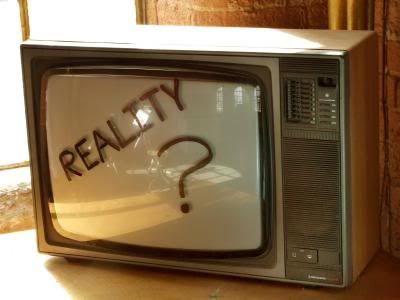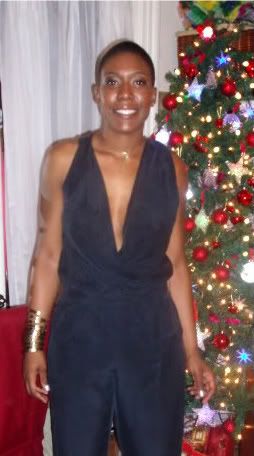The draw to these shows, I imagine, is recognizing that there are people worse off than ourselves. These often crass and classless characters help viewers feel better about themselves. We are smarter, prettier, and more socially aware than these fame craving cast caricatures. Well ain't that great. Laughing at people who don't know better so they can't do better. Entertainment at its finest.
Anywho, 2010 brings some new reality programming front and center and the reinforced stereotypes are as obvious as ever:
TLC brings you One Big Happy Family, a show about an obese family's struggle to get healthy.
Reinforced Stereotype: Black, fat and unhealthy.
VH1 Brings you:
Fantasia For Real, an inside look at the life of singer Fantasia Barrino.
Reinforced Stereotype: You can take the girl out the ghetto but...
Let's Talk About Pep, Pepa (of the famed group Salt and Pepa) and friends try to navigate single life.
Reinforced Stereotype: The Single Black Woman epidemic celebritized.
The Chili Project, still searching for the man of her dreams Chilli (of the famed group TLC) laments about being picky and never lowering her standards for love.
Reinforced Stereotype: The Single Black Woman epidemic celebritized part duex.
(Read more on these upcoming reality shows at blackamericaweb.com.)
Reality seems to be what the media makes of it. If you're of the mindset that it's all harmless fun, let me link you to a few articles that do a nice job of rebutting that idea:
Good Luck Finding The Reality In Black Reality TV by Evette Porter (www.theroot.com)
"There's always the danger that these exaggerated images have an impact on the way black families are seen," says media critic and author Donald Bogle, who admits that he doesn't follow many reality shows. "Flavor of Love and I Love New York harkens back to some age-old images. But much like those images of black people before, they were 'crafted' by writers," says Bogle, who wrote Primetime Blues: African Americans on Network Television. "Most reality shows are scripted. So what you see in reality shows is what the writers and producers want you to see. The danger," he adds, "is when there is a lack of diversity of black images."
Reality Television Shows: What is the Real Effect? by John B. Landers (www.regalmag.com)
With the reams of reliable data on the effects of television, the question is not if the focus of many of reality television shows targeted toward Black viewers is harmful. The evidence clearly backs that assertion. The more appropriate question may be why that continues to be the case when the destructive capacity of television has been proven over and over. Someone once told me that many words and phrases that we take for granted are usually coded and have deeper levels of meaning and are only understood by a few, or the initiated. He took the word “television,” and broke it down for me. This is what he got: “TELL A VISION.”
So what vision is the reality television shows our kids are watching telling them?
Reality TV Depicts Black Women Unfairly? (msnbc.com)
Yeah, yeah I know...guilty pleasures are just that.




